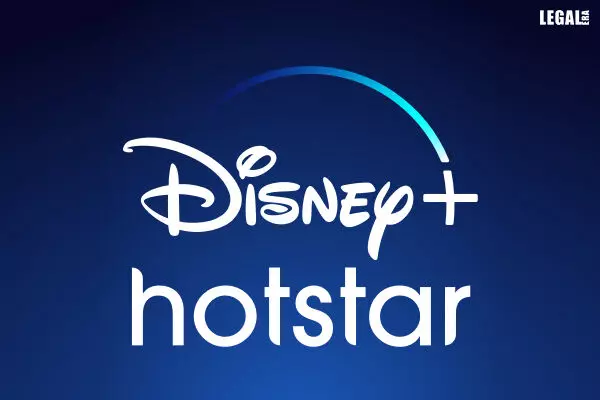- Home
- News
- Articles+
- Aerospace
- Artificial Intelligence
- Agriculture
- Alternate Dispute Resolution
- Arbitration & Mediation
- Banking and Finance
- Bankruptcy
- Book Review
- Bribery & Corruption
- Commercial Litigation
- Competition Law
- Conference Reports
- Consumer Products
- Contract
- Corporate Governance
- Corporate Law
- Covid-19
- Cryptocurrency
- Cybersecurity
- Data Protection
- Defence
- Digital Economy
- E-commerce
- Employment Law
- Energy and Natural Resources
- Entertainment and Sports Law
- Environmental Law
- Environmental, Social, and Governance
- Foreign Direct Investment
- Food and Beverage
- Gaming
- Health Care
- IBC Diaries
- In Focus
- Inclusion & Diversity
- Insurance Law
- Intellectual Property
- International Law
- IP & Tech Era
- Know the Law
- Labour Laws
- Law & Policy and Regulation
- Litigation
- Litigation Funding
- Manufacturing
- Mergers & Acquisitions
- NFTs
- Privacy
- Private Equity
- Project Finance
- Real Estate
- Risk and Compliance
- Student Corner
- Take On Board
- Tax
- Technology Media and Telecom
- Tributes
- Viewpoint
- Zoom In
- Law Firms
- In-House
- Rankings
- E-Magazine
- Legal Era TV
- Events
- Middle East
- Africa
- News
- Articles
- Aerospace
- Artificial Intelligence
- Agriculture
- Alternate Dispute Resolution
- Arbitration & Mediation
- Banking and Finance
- Bankruptcy
- Book Review
- Bribery & Corruption
- Commercial Litigation
- Competition Law
- Conference Reports
- Consumer Products
- Contract
- Corporate Governance
- Corporate Law
- Covid-19
- Cryptocurrency
- Cybersecurity
- Data Protection
- Defence
- Digital Economy
- E-commerce
- Employment Law
- Energy and Natural Resources
- Entertainment and Sports Law
- Environmental Law
- Environmental, Social, and Governance
- Foreign Direct Investment
- Food and Beverage
- Gaming
- Health Care
- IBC Diaries
- In Focus
- Inclusion & Diversity
- Insurance Law
- Intellectual Property
- International Law
- IP & Tech Era
- Know the Law
- Labour Laws
- Law & Policy and Regulation
- Litigation
- Litigation Funding
- Manufacturing
- Mergers & Acquisitions
- NFTs
- Privacy
- Private Equity
- Project Finance
- Real Estate
- Risk and Compliance
- Student Corner
- Take On Board
- Tax
- Technology Media and Telecom
- Tributes
- Viewpoint
- Zoom In
- Law Firms
- In-House
- Rankings
- E-Magazine
- Legal Era TV
- Events
- Middle East
- Africa
Madras High Court Temporarily Stops Google from Delisting Disney Hotstar App Over Billing System Dispute

Madras High Court Temporarily Stops Google from Delisting Disney Hotstar App Over Billing System Dispute
On Tuesday, the Madras High Court issued a temporary restraint order against Google, preventing the tech giant from delisting the Disney+Hotstar app from its Play Store for Android devices. This decision comes in response to the ongoing dispute between the two parties, which centers around Google’s new in-app billing policy.
Justice PT Asha issued the interim order in response to a plea filed by Novi Digital Entertainment, the owner of Hotstar, challenging Google’s billing policy. As part of the order, the Court directed Google to charge only a four per cent commission for all transactions made on the Disney+ Hotstar app, at least temporarily.
Earlier this year, various other companies, including Matrimony.com, AltBalaji, and Unacademy, had approached the High Court to challenge Google’s mandate, which required them to adopt the new billing system.
Previously, Google had enforced a requirement for all app developers to utilise its Google Play Billing System (GPBS) for all transactions, encompassing paid app downloads and in-app purchases. In return for the services provided by Google, app developers were subjected to a commission ranging from 15 to 30 per cent.
Under Google’s new billing system, users now have the option to select an ”alternative billing" besides the Google Play Billing System (GPBS). This policy allows app developers to employ third-party billing systems, but with the imposition of a service fee ranging from 11 to 26 per cent.
The fee imposed by Google’s new billing system has been a point of contention for app developers like Disney+Hotstar, Matrimony.com, and several others. These developers have been voicing their opposition to the service fee and raising concerns about its impact on their businesses and app pricing.



